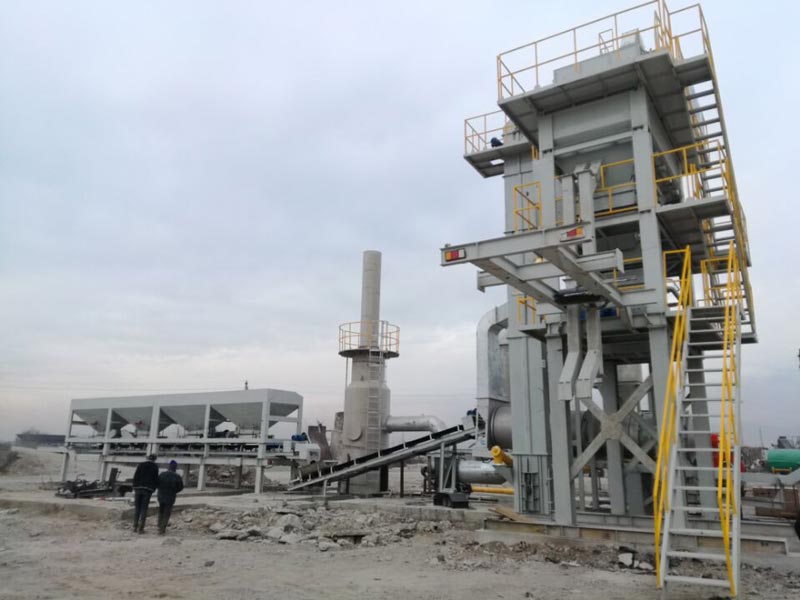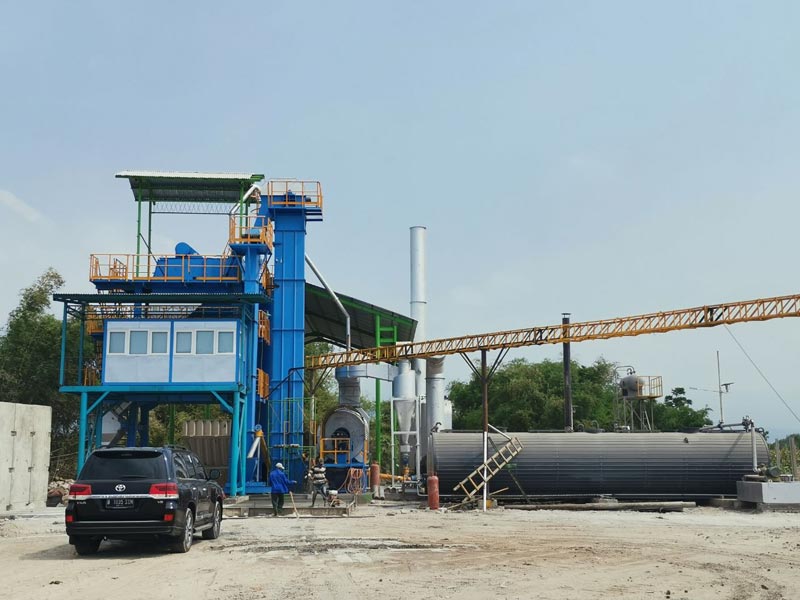In the modern construction industry, efficiency, quality, and sustainability are critical factors in ensuring successful projects. Whether it’s a small-scale road repair or a large highway construction, the need for a reliable supply of high-quality asphalt is essential. This is where advanced asphalt plants come into play. These plants streamline the production process and provide better control over the mix quality, significantly impacting the speed and success of construction projects. With innovations like the mobile asphalt plant and the continuous asphalt plant, the industry is seeing improvements that reduce costs, time, and environmental impact.
The Role of Asphalt Plants in Construction Projects
Consistent Asphalt Production
At the heart of any asphalt plant(planta asfalto) is its ability to provide a consistent supply of asphalt, an essential material used in paving roads, airports, bridges, and various infrastructure projects. Asphalt plants mix aggregates (such as crushed stone, sand, and gravel) with bitumen, creating a durable material that is resistant to heavy loads and varying weather conditions.
With the increasing demand for fast and efficient construction, having an asphalt plant nearby or on-site allows contractors to produce the required asphalt mix on demand, minimizing delays and ensuring projects are completed within the scheduled time.
Types of Asphalt Plants
There are two main types of asphalt plants: batch plants and continuous asphalt plants.
- Batch plants produce asphalt in batches. These are ideal for projects that require a variety of different mixes in smaller quantities.
- Continuous asphalt plants, on the other hand, produce asphalt continuously, making them ideal for large-scale projects that require a constant supply of asphalt. Continuous plants tend to be more efficient and cost-effective for high-volume production.

Benefits of Using Mobile Asphalt Plants
Flexibility and Mobility
One of the biggest advantages of a mobile asphalt plant(planta móvil de asfalto de AIMIX) is its portability. Traditional stationary plants require permanent setups, which can be costly and inefficient for smaller or remote projects. Mobile asphalt plants, however, can be transported directly to the construction site, eliminating the need to transport asphalt over long distances. This is especially beneficial for projects in rural areas or locations far from asphalt suppliers.
With the ability to set up and dismantle quickly, mobile asphalt plants provide unmatched flexibility for contractors who work on a variety of projects across different locations. This mobility also reduces transportation costs and the risk of asphalt hardening during transit, ensuring higher-quality mixes.
Cost Efficiency
By having a mobile asphalt plant on-site, contractors can save on both transportation and labor costs. Transporting pre-mixed asphalt can be costly and time-consuming, particularly for large-scale projects. Additionally, producing the asphalt on-site reduces the dependency on external suppliers, making it easier to manage costs and scheduling.
Furthermore, continuous asphalt plants are designed to operate efficiently with minimal human intervention. This automation reduces labor costs and allows contractors to focus more on other critical aspects of the construction process.

Improving Quality Control with Advanced Asphalt Plants
Consistent Mix Quality
One of the most important factors in construction is ensuring the quality of materials. When sourcing asphalt from third-party suppliers, contractors have limited control over the mix’s consistency and quality. By investing in their own asphalt plant, they can oversee the production process and make adjustments as needed to meet specific project requirements.
Mobile asphalt plants and continuous asphalt plants(plantas de asfalto continuas) are equipped with advanced technology that monitors the temperature, composition, and consistency of the mix, ensuring a uniform product every time. This level of control not only improves the performance and durability of the asphalt but also reduces waste.
Customization for Different Projects
Different construction projects require different types of asphalt mixes. For example, highways may need a more durable mix to handle heavy traffic, while residential roads may require a smoother surface. With their own asphalt plant, contractors can customize the mix to suit each project’s specific needs.
Whether it’s adjusting the aggregate composition or the amount of bitumen, having control over the asphalt mix ensures that the final product meets the highest standards of quality and performance. This customization is especially useful in projects where unique environmental conditions or traffic loads need to be considered.
Environmental Impact and Sustainability
Reduced Emissions
Modern asphalt plants are designed to minimize their environmental impact. One way they achieve this is by reducing emissions during the production process. Advanced filtration systems and environmentally-friendly burners help minimize pollutants released into the atmosphere, ensuring compliance with environmental regulations.
Additionally, mobile asphalt plants help reduce the carbon footprint associated with transporting asphalt over long distances. By producing the material on-site, contractors can significantly cut down on fuel consumption and emissions.
Recycling Capabilities
Another key feature of advanced asphalt plants of AIMIX Group China(plantas de asfalto avanzadas de AIMIX Group China) is their ability to incorporate recycled materials. Continuous asphalt plants, in particular, are designed to use reclaimed asphalt pavement (RAP), which is created from milling old asphalt surfaces. By recycling RAP, contractors can reduce the demand for new raw materials, lower production costs, and promote sustainable construction practices.
The use of recycled materials not only conserves natural resources but also contributes to the circular economy, where materials are reused rather than disposed of after a single use.
Long-Term Benefits for Construction Companies
Increased Productivity
By investing in an advanced asphalt plant, construction companies can increase productivity and complete projects faster. With on-site production, contractors can respond quickly to any changes in the project’s requirements or schedule, minimizing downtime and avoiding costly delays. This improved efficiency leads to greater profitability and the ability to take on more projects simultaneously.
Competitive Advantage
Owning a mobile asphalt plant or continuous asphalt plant also gives construction companies a competitive edge. They can offer better pricing and faster project completion times than competitors who rely on external asphalt suppliers. This flexibility allows them to bid on a wider range of projects, including those in remote or challenging locations where transporting asphalt would otherwise be impractical.
Conclusion
Investing in advanced asphalt plants, whether mobile or continuous, is a strategic move that can significantly enhance construction projects. By improving efficiency, reducing costs, and maintaining high-quality control over the asphalt mix, these plants provide long-term benefits for contractors in the road and bridge construction industries. Additionally, their environmentally-friendly features and ability to recycle materials contribute to more sustainable construction practices. For any construction company looking to improve its operations, an asphalt plant is a valuable asset that ensures successful project outcomes every time.